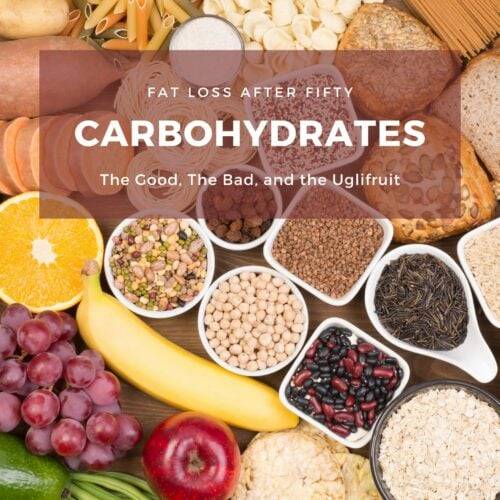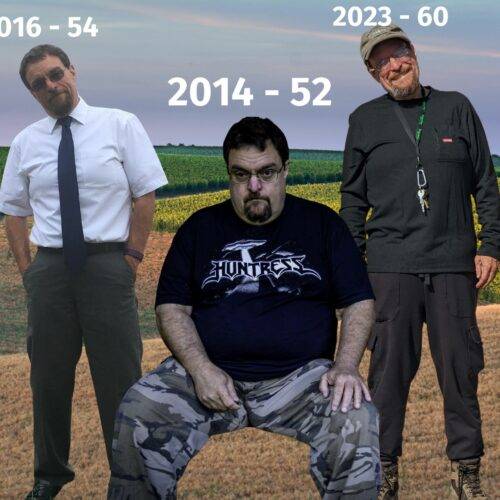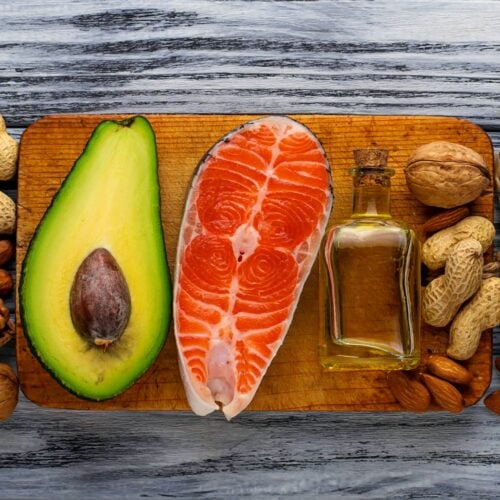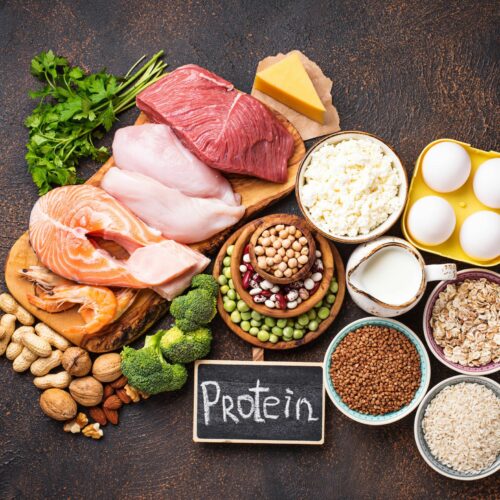Carbohydrates: The Good, The bad, and the Uglifruit
Carbohydrates and Fat Loss are closely connected. If we aren’t inquisitive, we will fall into the trap of thinking of carbs as one thing. When people say, “I’m eating low carb.” My first question is what does that mean actually? If you don’t really understand carbohydrates and their role in your own fat loss journey… This handy-dandy guide may help!
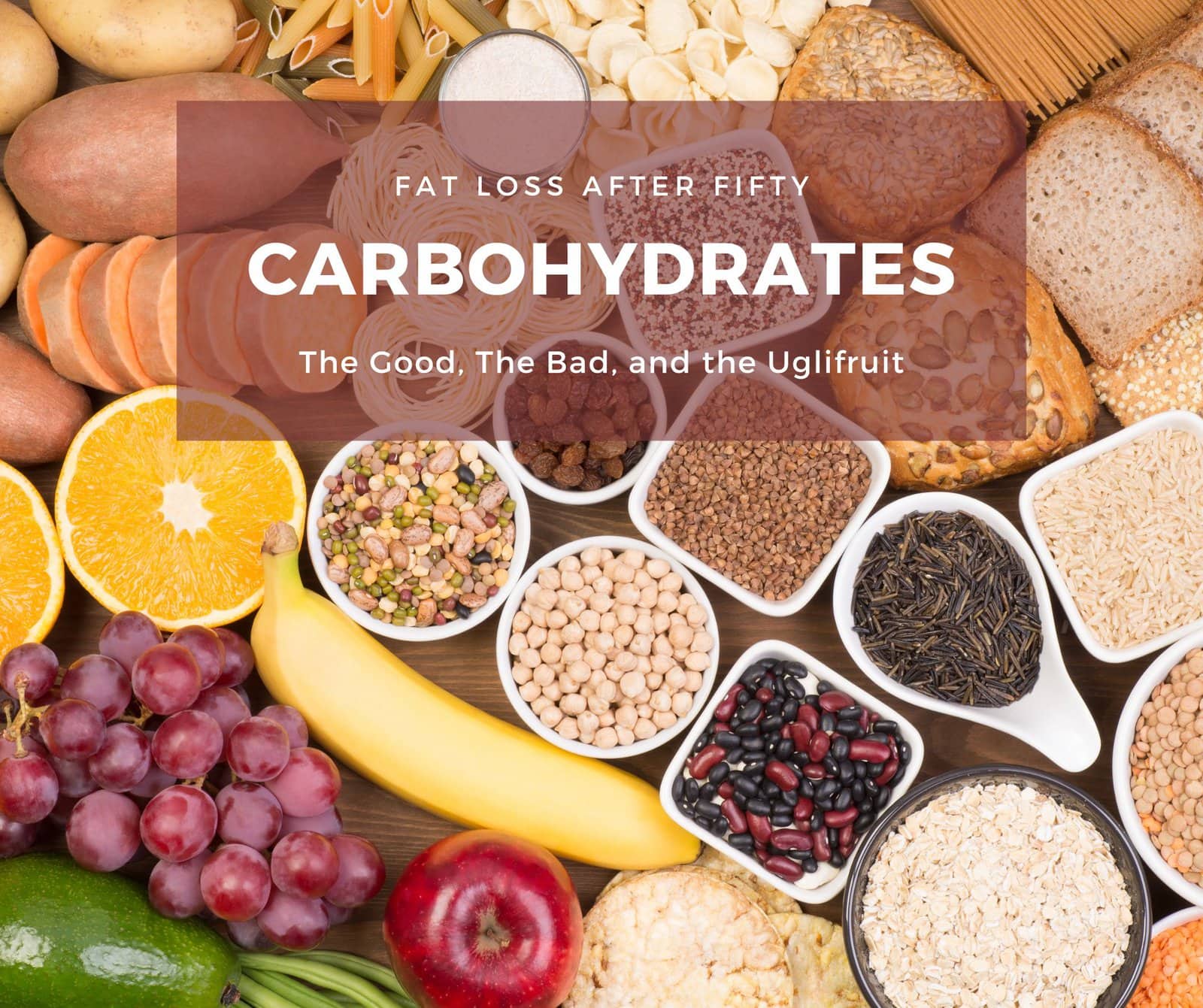
Types of Carbohydrates

Carbohydrates can be categorized into three main types: simple carbohydrates or sugars, compex carbohydrates or starches, and of course dietary fiber, the over fifty favorite.
- Sugars: Simple carbohydrates that are found naturally in fruits, vegetables, and dairy products, as well as added sugars in processed foods. Examples include glucose, fructose, and lactose.
- Starches: Complex carbohydrates that consist of multiple sugar units bonded together. These are found in grains, legumes, and starchy vegetables like potatoes and corn.
- Fiber: Indigestible carbohydrates that have important health benefits. Dietary fiber is found in plant-based foods such as fruits, vegetables, whole grains, and legumes.
- Natural: Comes from the wonderful yield of the good green earth. Yeah up until the late-18th century? Nobody ate anything else.
- Processed: the produce of giant industrial food corp. Now? It’s pretty much all anyone ever eats.
How the Body Processes Carbohydrates
The body, miracle that it is, processes carbohydrates according to their type:
Digestion: Carbohydrates are broken down into simpler sugar units in the digestive system. Starches and disaccharides (e.g. lactose) are broken down into monosaccharides (e.g. glucose) through enzymatic action.
Absorption: Monosaccharides are absorbed into the bloodstream through the intestinal lining.
Conversion to energy: Glucose, the primary energy source for cells, is transported into cells by insulin, where it is converted into energy through a process called cellular respiration.
Processing dietary fiber: Unlike other carbohydrates, dietary fiber is not digested by the human body. Instead, it passes through the digestive system mostly intact. Soluble fiber can be fermented by happy bacteria in the colon, producing short-chain fatty acids that can be absorbed and used for energy. Insoluble fiber, on the other hand, adds bulk to the stool and helps in regulating bowel movements. Dietary fiber is essential for maintaining gut health, managing blood sugar and cholesterol levels, and promoting a feeling of fullness. Important when fat loss is your goal.
Conversion of excess carbs to fat: When the body has more glucose than it needs for immediate energy or glycogen storage, the excess glucose is converted into fatty acids through a process called de novo lipogenesis. These fatty acids can be stored in adipose tissue (fat cells) for later use. This conversion and storage of excess carbohydrates as fat contributes to weight gain and makes it more challenging to lose fat. There you go, science just told you why your pants don’t fit.
Natural vs. Processed Carbohydrates
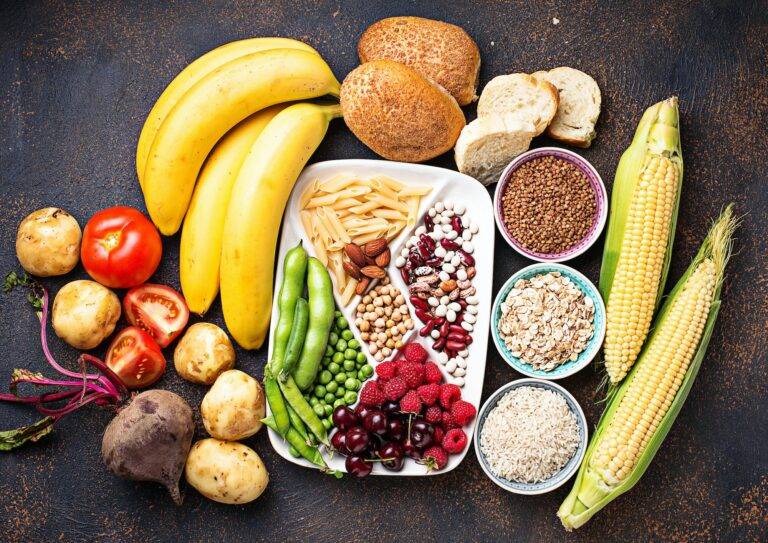
I love story-time. Once upon a time, in a land right here, people ate real food. That’s really all they had to eat. Want the evidence of how well that part of their lifestyle worked out? Go visit a colonial era graveyard in Connecticut or Massachusetts’s. Notice how half those folks in there died in their nineties. Because of what those folks ate, the amount of physical activity the time required, and the community they had: Hey, if an accident, plague, consumption or the British didn’t kill you, you were pretty much going to live forever. Can real food, and the natural carbs they contain that powerful? With other lifestyle factors, yeah. Here’s what:
Natural Carbohydrates
- Found in whole, unprocessed foods
- Rich in vitamins, minerals, and fiber
- Provide sustained energy due to slower digestion and absorption
Processed Carbohydrates
- Found in refined and processed foods
- Often stripped of nutrients and fiber
- Can cause metabolic syndrome, heart disease, cancer and etc.
- Can cause rapid spikes in blood sugar levels, leading to hunger and cravings
The implications of natural and processed carbs for people over 50
After the age of 50, hormonal changes, slower metabolism, and reduced muscle mass can make fat loss more challenging. The type of carbohydrates you consume can have a significant impact on your efforts:
- Natural carbohydrates: Consuming whole, unprocessed carbohydrates that are rich in fiber can help regulate appetite, maintain steady blood sugar levels, and promote satiety. These factors can support weight loss by reducing overall caloric intake.
- Processed carbohydrates: Refined and processed carbohydrates, which often lack nutrients and fiber, can contribute to weight gain by causing blood sugar fluctuations, increased hunger, and cravings. They also tend to be higher in calories and lower in nutrients, making them less conducive to weight loss efforts.
The only nutritional advice about carbohydrates I will ever give anyone is all contained in the next bits. Its all about prioritizing the healthier options when it comes to the food you are eating. But to do that, you need to know what those options are. And in the realm of carbohydrates, you have to fight through a wall of marketing jargon, food propaganda and old habits to find those choices consistently.
At the End of the Day: Prioritize healthy carbs
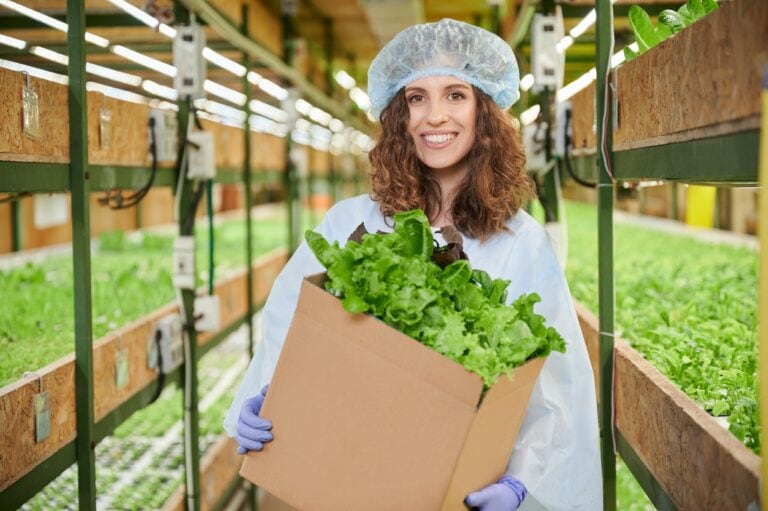
Fat Loss is really about a few simple principles applied consistently, not perfectly, over time. An eating style that consists of the right balance of whole-food derived proteins, fats and carbohydrates, with an appropriate calorie deficit is key to the nutritional component of a sustainable weight and healthier, longer, life. When it comes to achieving and maintaining a healthier body composition, the type and amount of carbohydrates you consume can play a crucial role. Carbohydrates are an important source of energy for the body, but not all carbs are created equal. Prioritizing the best quality carbohydrates can help you lose fat while maintaining good health. Here is a few. Oh
Healthy Carbohydrates:
- Leafy greens like spinach, kale, collard greens, and broccoli are a great source of healthy carbohydrates. They are low in calories, high in fiber, and packed with essential vitamins and minerals, making them an ideal food for weight loss and overall health. Including a variety of leafy greens in your diet can also help reduce the risk of chronic diseases such as heart disease, type 2 diabetes, and certain cancers.
- Whole Grains: Whole grains like brown rice, quinoa, barley, oats, and whole-wheat bread are excellent sources of fiber and complex carbohydrates that digest slowly and keep you feeling full for longer periods. They are also rich in essential vitamins, minerals, and antioxidants.
- Vegetables and Fruits : Vegetables and Fruits are rich in fiber, vitamins, minerals, and antioxidants. They are also low in calories and have a low glycemic index, meaning they don’t spike your blood sugar levels. Eat more, like five times ,ore vegetables than fruits. Limit the monosaccharides man,
- Legumes: Legumes like lentils, chickpeas, and beans are high in protein, fiber, and complex carbohydrates that digest slowly and keep you feeling full. They also contain essential vitamins and minerals that support good health.
- Sweet Potatoes: Sweet potatoes are a nutritious carbohydrate source that is rich in vitamins, minerals, and antioxidants. They are also lower on the glycemic index compared to other starchy vegetables, making them a better choice for healthy weight loss.
Unhealthy Carbohydrates:
- Refined Grains: Refined grains like white bread, pasta, and rice are stripped of their fiber, vitamins, and minerals, and are quickly digested, causing spikes in blood sugar levels. They also contribute to inflammation in the body, which can lead to various health problems.
- Sugary Foods: Sugary foods like candy, soda, and baked goods are high in calories, and they provide little nutritional value. They also cause spikes in blood sugar levels, leading to cravings and overeating.
- Processed Snacks: Processed snacks like chips and crackers are often high in calories, sodium, and unhealthy fats. They also contain added sugars, artificial colors, and flavors, which can negatively impact your health.
In conclusion, when it comes to losing fat and maintaining good health, it’s important to prioritize healthy carbohydrates over unhealthy ones. Choosing complex carbohydrates that are rich in fiber, vitamins, minerals, and antioxidants can help you feel full and satisfied while supporting good health. At the same time, avoiding or limiting refined grains, sugary foods, and processed snacks can help you reduce your calorie intake and avoid negative health consequences.
This wraps up the macronutrient series, tune in next week for… well I guess we’ll both be surprised.
Love you all like microgreens!
Related Articles
